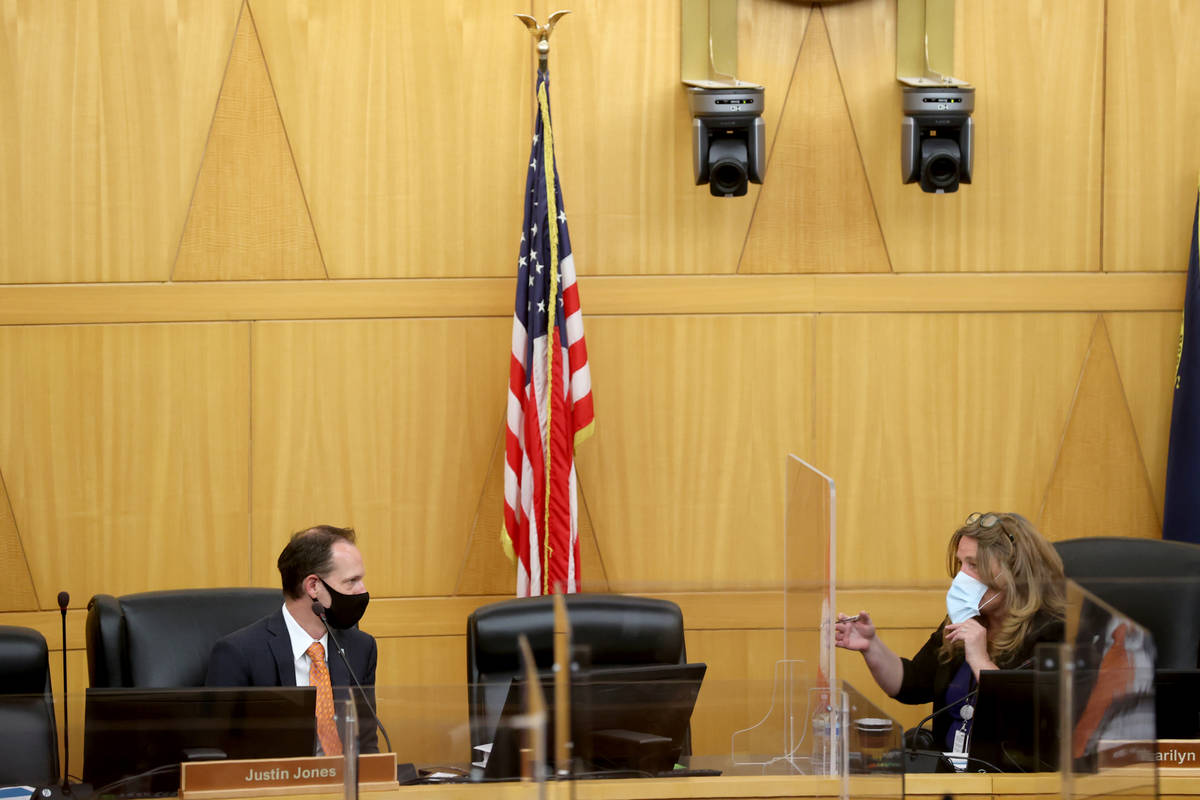Clark County has $440M in federal COVID aid. How will they spend it?
Clark County officials will have $440 million in federal funds to support those hardest hit by the COVID-19 pandemic, including renters, small businesses and low-wage workers who have been front and center during the crisis.
The question now is: How do they plan to spend it?
As the county reopened to full capacity Tuesday, welcoming a milestone, county commissioners broadly discussed a wide range of needs showing the pandemic’s effects will continue to be felt even though day-to-day restrictions have been lifted.
A plan is due Aug. 31 on how the county intends to allocate money on programs over the next three years under President Joe Biden’s American Rescue Plan. The county already received $220 million in federal funds and is expected to receive the other half within a year, according to Chief Financial Officer Jessica Colvin.
Colvin said that officials were still combing through interim federal guidance issued May 10 and seeking clarification on certain points, including on limitations for rental assistance.
Commissioner Justin Jones had questioned whether it would be possible to move the rental assistance process quicker under the new federal funds, acknowledging that current requirements have been “paperwork hell” and less seamless than when CARES Act dollars were bankrolling the program last year.
The county will have until Dec. 31, 2026, to spend the funds it chooses to allocate toward programs between March 3, 2021, and Dec. 31, 2024, according to Colvin.
‘Recipe to change the course’
Commission Chairwoman Marilyn Kirkpatrick called upon the county to be a leader by bringing together other jurisdictions that also received funding, including neighboring cities and the state, to “truly transform” the county.
“This is a recipe to do it very, very bad or a recipe to change the course for so many that have been lost, at no fault of their own, for a long time,” she said.
Possible uses include premium pay to low-wage essential workers, including grants to private employers, and addressing disparities in education. Colvin said the county may also invest in affordable housing, offering a more flexible revenue source than restrictive Housing and Urban Development funding.
The county can also provide aid to small businesses and nonprofits. Commissioner Michael Naft noted that roughly $22 million in business grant applications were unfunded during the program’s last round.
Beyond assistance to small businesses, Commissioner William McCurdy II said the county should invest in food research and startups so communities can become more independent in food security.
Effects on poor, minorities
In its guidance to local governments, the American Rescue Plan singled out addressing the severe effects of the pandemic for low-income communities and people of color.
Colvin said that hardest-hit communities will be defined not only by public health metrics but by economic data as well, such as unemployment rates.
The county may also spend money on efforts such as vaccine programs, personal protective equipment and enhancing public health data systems, and on investments in water, sewer and broadband infrastructure.
Commissioner Tick Segerblom indicated he was interested in job training programs, while Commissioner Jim Gibson sought to ensure that dollars from the American Rescue Plan could supplement the county’s efforts on homelessness.
“This is a tsunami waiting to happen unless we’re ahead of it,” Gibson said.
Evictions have been a looming crisis delayed by federal and state protections through much of the pandemic. The state’s moratorium expired Monday, but a federal ban remains in effect until June 30, leading experts to say that a flood of lockouts in Nevada this month is highly unlikely.
Contact Shea Johnson at sjohnson@reviewjournal.com or 702-383-0272. Follow @Shea_LVRJ on Twitter.











































